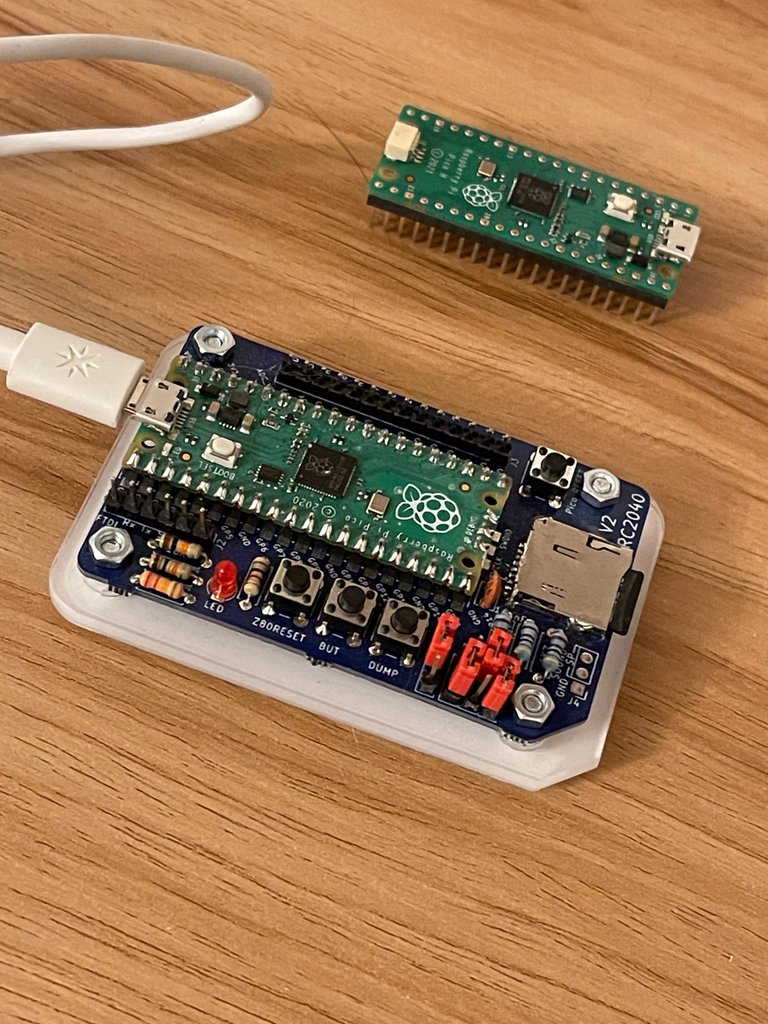
While on a CP/M kick, I thought I would dig out my RC2040.
It's a bit of an odd one this because it emulates the RC2014, which is itself a simulation of 1970s-era Z80 computers.
You might know the RC2014 already but if not it is essentially as near as possible a throwback but with chips available today. Complete with "back plane" and interchangeable upgrade boards.
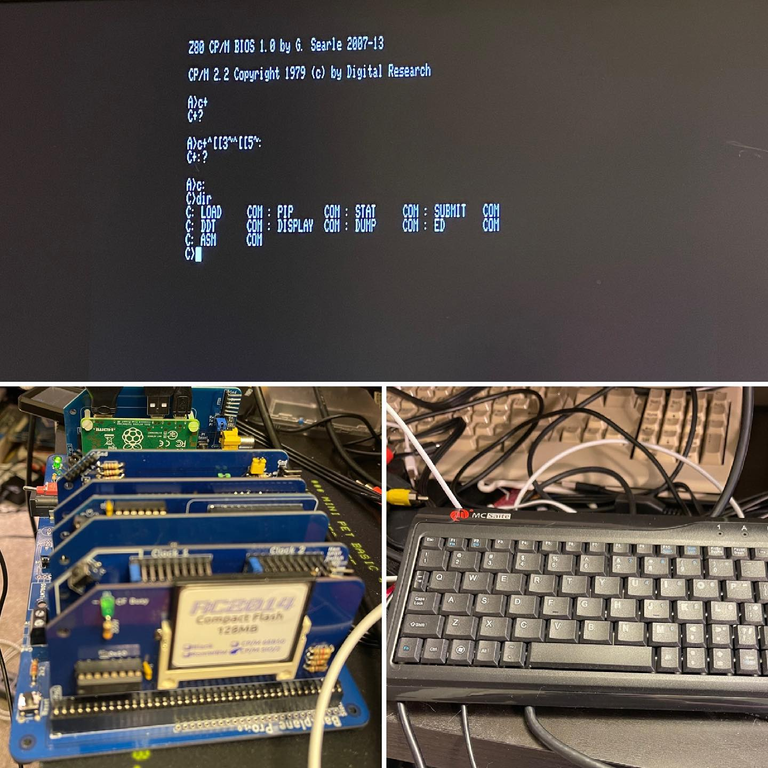
The RC2014 is amazing but assembling it is a fair investment of time and patience.
It's a lot of soldering.
Enter the RC2040, a Raspberry Pi Pico emulation of the RC2014 that only requires a Pico and an SD card.
The full kit has a professionally fabricated PCB, SD card reader, buttons, resistors, and an acrylic base with silicone feet.
For electronics tinkerers, an I/O Port 0 is brought out to a connector and can be used as a GPIO, an 8bit in/out port similar to the digital IO board of the RC2014.
For me, the appeal is to develop on CP/M, and there are two approaches to that - the RC2014 as mentioned, and RunCPM which can run at 270Mhz (!), and gives direct file system access, so is less 'authentic' but more convenient for rapid development.
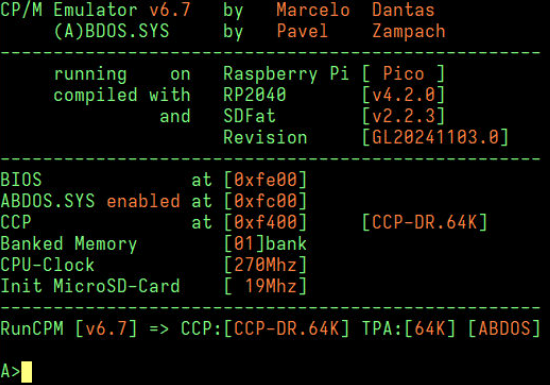
You can, of course, also run the old BASIC, Z80 Monitor, .HEX software, plus a neat UNIX variant.
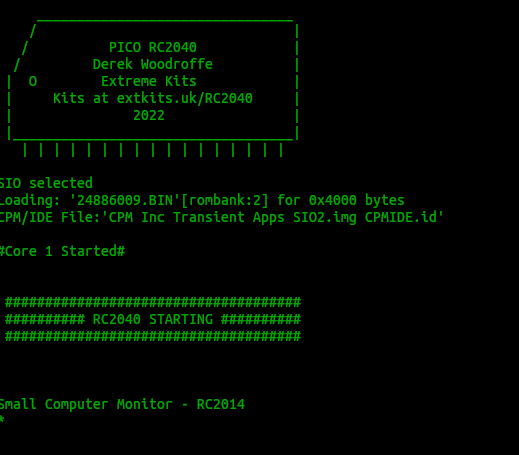
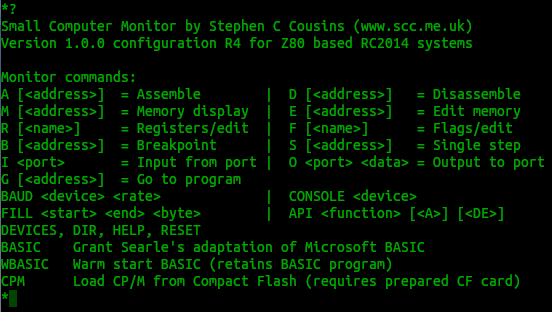
I've not played with those little boards. I think I saw someone emulated an original Mac with one. It shows the power you can get for a few quid these days.
Yeah between the pico, the pi, and boards like the ESP32, it’s amazing what can be done